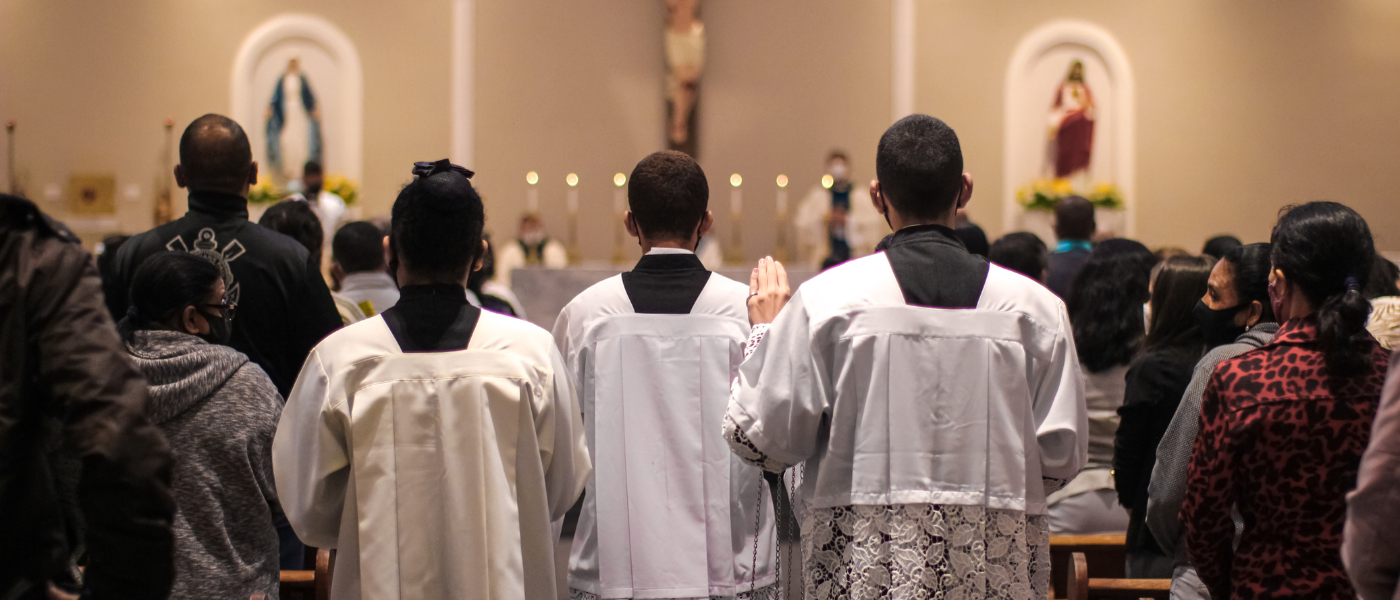The Catholic Church On End of Life and Last Rites
Last Rites… the term itself is ominous. Pop culture and the media have bandied the phrase about for years without clearly bringing meaning to what such rites encompass. The title conveys indistinct impressions of mortality and cryptic mystery, as if the bestower and recipient make a transaction involving the keys to the afterlife.
So what are the actual Roman Catholic “last rites”, and what is their purpose?
They’re basically several different types of blessings performed in different combinations, depending on the circumstances.
Anointing of the Sick
The Anointing of the Sick is often confused with or assumed to comprise the Last Rites in their entirety, but for pretty good reason – this is a popularly recognized blessing conferred upon those who are gravely ill or suffering.
Its purpose is about what one would anticipate: when provided at the hands of a priest, the Anointing of the Sick involves restoration of health, forgiveness of sins, unification with the church, the provision of peace, faith and strength, as well as ultimate preparation for passing over.
Anointing of the Sick may be performed by itself, without other sacraments. In the Catholic Church, a number of special actions involving blessings are called “sacraments.” Sacraments involve a visible, physical action, such confessing one’s sins or receiving the Eucharist, which leads to God’s grace (more on that to follow.)
Confession, Eucharist, Special Blessings
In addition to the Anointing of the Sick, sacraments commonly performed for Catholics at the end of life are administered by priest or Bishop (a priest with higher authority in the church). These sacraments are intended to bring the soul of the person near death into God’s grace (openness between the believer and God without the obstacle of sin).
End of life sacraments include Penance (also known as the confession of sins), Communion, and the Anointing of the Sick, as well as other special blessings as relevant to circumstances (for example, if the person is unconscious or unable to speak to confess, it may be possible to receive an “Apostolic pardon”, or special blessing).
Catholics believe that during the calibration of holy Mass, the Eucharist becomes the body and blood of Jesus. The Viaticum (in Latin, “food for the journey”) is a special celebration of the Eucharist for the last time, usually near to the time of death. Viaticum is frequently performed along with the Anointing of the Sick, though it does not need to be. It is unique in that it may be performed not only by a priest or Bishop, but also by a Deacon, or even a properly-trained layperson entrusted with the office.
Most importantly, the purpose of the blessings is intended to unite the person as closely as possible with the church for the last time, and to impart peace to the believer and family. Many Catholic organizations and churches provide further information on specific rites and sacraments and welcome specific questions. Your local Catholic parishes can certainly provide more specific information for your community.




